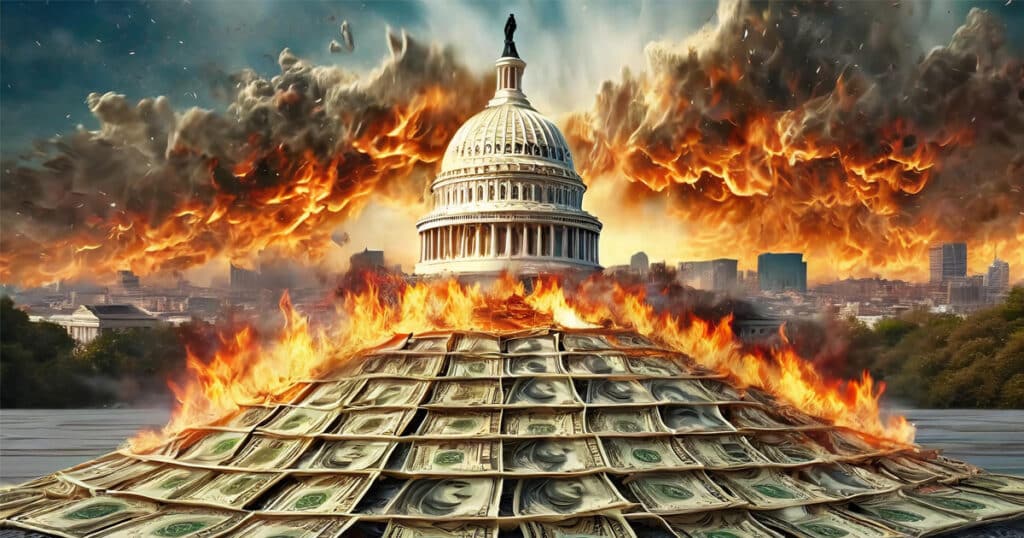
When Government Becomes the Competitor: A Dangerous Precedent in NYC
Among the many radical socialist ideas advanced by New York City Democratic mayoral candidate Zohran Mamdani, perhaps the most concerning is his proposal to establish city-run grocery stores that operate without a profit motive. Mamdani, an avowed democratic socialist, envisions publicly funded food stores in each borough that compete directly with private grocers while being subsidized by taxpayers and exempt from rent, property taxes, or profit requirements.
Chew on that one for a while.
Unprecedented Intrusion into Private Enterprise
While the initiative is pitched as a solution to affordability and food insecurity, it raises urgent questions about economic freedom, fairness, and the long-term implications of government intrusion into healthy, competitive markets. What’s most astounding in Mamdani’s grocery store idea is the complete and utter rejection of capitalism, the economic system that stands as a cornerstone of American enterprise and the vehicle generations have used to gain extraordinary wealth and prosperity.
Cloaked in a façade that purports to be nothing more than an extension of public service, akin to public schools or buses, Mamdani soft pedals the poison. However, there is a critical distinction between government providing public services and this fetid scheme: those services often exist in industries and locations that are not profitable for private enterprise. In contrast, New York City has one of the most robust grocery markets in the country, populated by chains, family-owned stores, co-ops, and ethnic markets serving diverse communities. There is no systemic failure here to justify a publicly funded takeover.
This proposal steps into unprecedented territory. It’s one thing for the government to subsidize an industry in need or to provide essential services where the market is incapable, but it’s another thing entirely for the government to create an enterprise, declare it exempt from the basic rules of commerce, and use taxpayer money to undercut existing businesses.
The logic of this proposal doesn’t stop at groceries. If allowed to proceed, what’s to stop a city from launching government-run clothing stores? Construction companies? Pet supply chains? If profit is no longer the measure of success, and public justification can be molded around affordability or equity, no business or industry is safe.
The Nauseating “Fairness” Argument
Supporters of the plan might argue that food is a necessity, and thus the city has a responsibility to ensure access and affordability. But this justification, once accepted, can be applied to virtually every product and service imaginable. Clothing, shelter, childcare, and transportation are all essential in some way. Should government enter every one of those markets, displacing tax-paying businesses that already operate under thin margins? And once government has nationalized those industries, what’s next? Should the city provide access and affordability for fast food? Should there be a not-for-profit competitor to McDonalds?
Why not?
The issue isn’t simply about economics. It’s about principle. In a free-market economy, the government acts as a referee, not a player. When it becomes both regulator and competitor, it wields unfair advantages. It can rig the game entirely by operating at a loss, subsidizing its own costs, ignoring normal financial pressures, and using regulatory levers against private competition. This creates a chilling effect on entrepreneurship, innovation, and investment. Why would anyone open a small business in a city where the government can decide to compete with you at will, funded by your own taxes?
Think about that for a moment.
It also raises legal concerns. While courts generally give local governments broad discretion under the “public purpose doctrine,” there are limits. Taxpayers and businesses may have standing to challenge such ventures if they can demonstrate unfair competition, misuse of public funds, or violations of state constitutional provisions that bar using public money for private purposes. Even if these lawsuits fail, the mere need for legal defenses drains resources and erodes trust.
In light of the verdicts we’ve seen coming from the courts in New York, it’s difficult to imagine any of the woke leftist judges in either the New York State Court or the U.S. District Court wouldn’t side with the city.
A History of Failures in Socialism
In every instance from the Soviet Union to Venezuela, governments that replace market mechanisms with state-run enterprises deliver nothing but inflation, supply chain shortages and misery to the people. The lack of profit motive inevitably leads to bloat, waste, and complacency. Quality suffers. Costs balloon. And when losses pile up, taxpayers foot the bill.
The ideal of equity becomes a cover for dysfunction. At the same time, it’s important to remember that woke leftists were so outraged over the prospect of reducing bloated bureaucracies and the associated waste, fraud and abuse, they firebombed Tesla dealerships and terrorized Tesla owners because Elon had the audacity to expose the corrupt, squalid system.
It appears that, in fact, they like that sort of thing as long as there is some associated free money benefit.
No one argues that there is room for public involvement where justified by genuine need, such as utilities and mail delivery in remote areas, but the default should always be to support and promote private sector solutions first, and only when all those options are exhausted should government get involved. Government should level the playing field, not bulldoze it.
Mamdani’s proposal is a tangible representation of the Democrat party’s inexorable march to embracing full-fledged socialism. It’s much easier to dismiss these people as psychotic lunatics, which they are, but it would be a grave mistake. America’s patriots should take this threat seriously and make it a point to lobby their representatives to craft federal laws that prohibit federal, state or local governments from intervening in markets with a thriving private sector.
Otherwise, if Mamdani’s idea is left unchallenged, the real question is what happens when the government decides it no longer needs the private sector at all?
Once government competition becomes normalized, reversing course is difficult, if not impossible. Bureaucracies expand. Interest groups form. Private competitors close. And the taxpayer becomes the guarantor of yet another inefficient system with no exit strategy.
The debate over city-run grocery stores is not about food. It is about the future of our economy. If we believe in capitalism, in entrepreneurship, in the power of markets to deliver value and innovation, then we must draw a line here. Because if the city can drive out your neighborhood grocer today, what’s to stop it from coming for your business tomorrow?




This has to be dealt with by Congress. There must be a clear an unambiguous federal law that prohibits any federal , state or local government from entering into a market that is currently served by private enterprise. Hard to imagine this is even an issue in the home of free market capitalism.